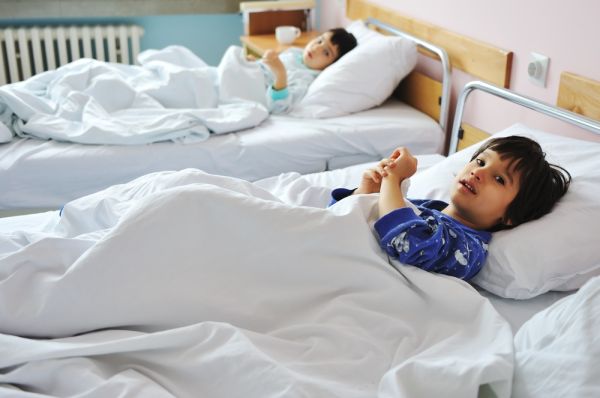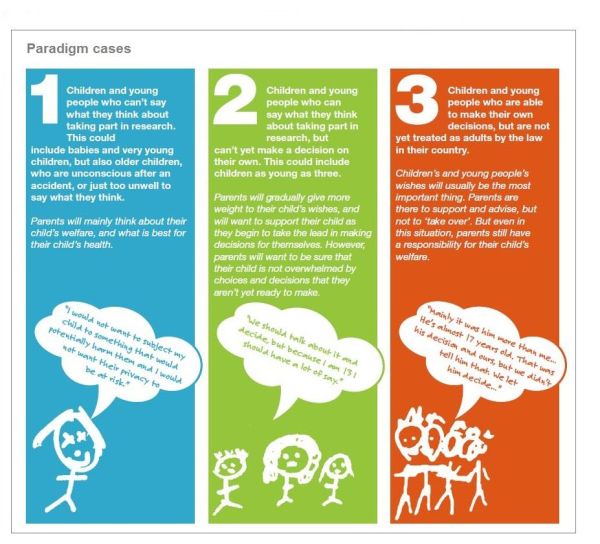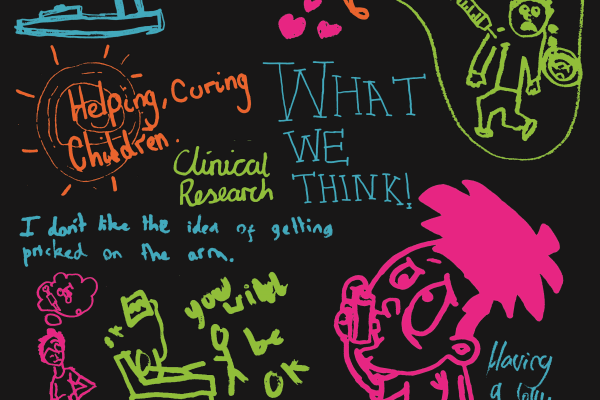Children and clinical research: ethical issues
Report
Published 14/05/2015
What’s different about research with children and young people?

Many of the rules that researchers have to follow are the same for adults and for children. However, there are ways in which children and young people are different from adults. These include:
- The way children develop as they grow up – for example in what they can do, what they understand, and the way they feel.
- Children aren’t on their own – they are part of their families. They have parents looking after them and making decisions with them.
What do parents need to think about?
When parents make decisions with their children, or for their children, they need to take a number of things into account:
- Children are individuals, however young they are. Children’s wishes matter, even if adults don’t always agree with them.
- As they grow up, children get more confident at making decisions for themselves. They need to be able to practise making decisions – but they also need help and support from their parents.
- Parents are responsible for looking after their child’s welfare – what’s ‘good’ for them.
What do we mean by ‘welfare’?
Parents look after their children’s welfare by trying to protect them from harm. But welfare is also about having opportunities to learn and develop. For parents, this includes thinking about the kind of person their child is growing up to be, and what they think is important.
Taking part in worthwhile research might be ‘good’ for a child or young person, even if they don’t get something back for themselves or benefit from taking part.
Parents and children will need to know that everything has been done to make the research as safe as possible. They may also want to know afterwards whether the research has proved something, and is likely to help others.
When we talk about parents in our report, we mean anyone who is doing a parent's job - for example, a guardian, or a grandparent who is responsible for a child all the time.
When we talk about children and young people, we mean anyone who isn't yet treated as an adult by law in their country.
Three different research situations for children, young people and parents
There are three situations where the questions about how to treat children and young people in research will be quite different.

These three situations aren’t just about a child’s or young person’s age. A lot will depend on how complicated the decision is, and how children or young people feel at the time. For example, a 12 year old might be able to make decisions for some kinds of research but not for others. A 16 year old might feel too ill to make a decision about research on their own, even though normally they are very independent.
For more information, see Chapter 4.

Share